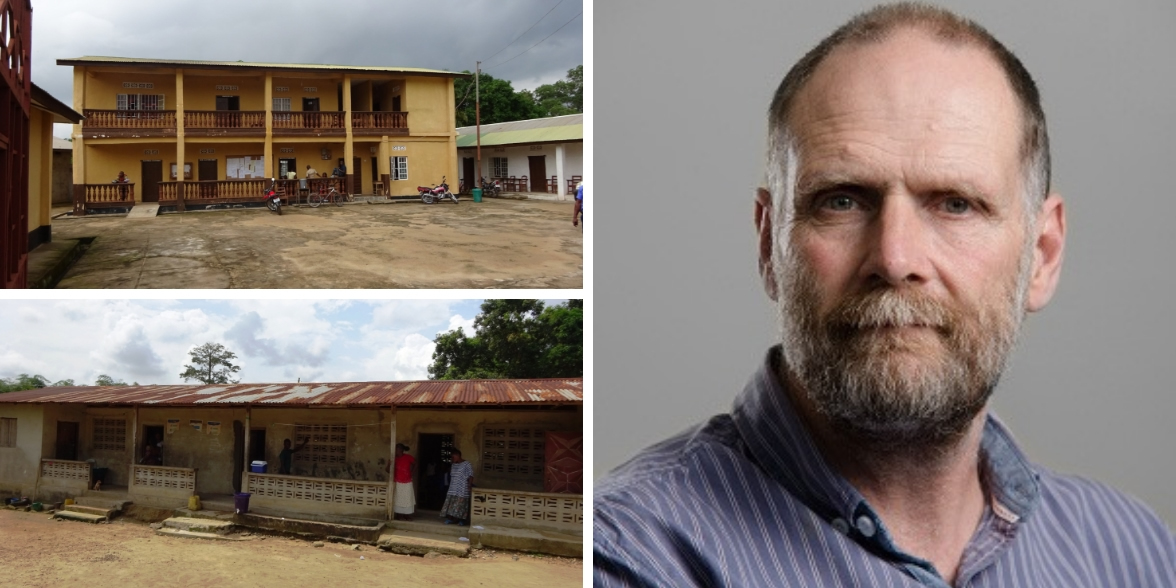Education Policy in Sierra Leone influenced by University of Northampton research
Date 9.10.2018
9.10.2018
In 2014, the world first began to feel the impact of the Ebola outbreak in Sierra Leone. Two years later, the World Health Organisation declared the country free from the deadly virus, allowing the University of Northampton’s Faculty of Education and Humanities academics, Professors Richard Rose, Philip Garner and Dr Brenna Farrow to embark on research to inform the development of educational provision for children with disabilities.
Sierra Leone is a country still recovering from the devastating impact of the Ebola virus and the earlier war which left much of the infrastructure destroyed. The country has ambitious plans to rejuvenate their education system, which was fractured by the deaths of thousands of teachers and pupils and the nine-month suspension of education provision across the country.
The Government’s Ministry of Education, Science and Technology recently published its Education Plan, ‘Getting it Right: Service Delivery, Integrity and Learning in Sierra Leone’, which has been influenced by the work of the University of Northampton research team. The team, funded by Sightsavers, conducted an investigation into conditions in Sierra Leone’s schools, which were either supporting or inhibiting the provision of education for all children, including those with disabilities.
Professor Richard Rose commented: “In November 2017, an Inclusive Education Policy was validated, highlighting ways of reducing exclusion and responding to the diversity of needs of all learners. It is a great privilege that our research has influenced government policy and our recommendations in respect of training teachers, providing changes to infrastructure and shaping the curriculum are now apparent in the way the Education Plan sets out the country’s aspirations to support children with special educational needs and disabilities, by helping them access appropriate education and social services. The research team and I are pleased to have seen that some quite difficult messages have been listened to, our research and recommendations now implemented through government policy has the potential to improve the lives of children and parents in one of Africa’s most fragile places.”
Dr. Minkailu Bah, Minister of Education, Science and Technology comments in his preface to the Education Plan: “I am aware that everyone is happiest when learning is seen to be taking place in our schools and colleges. I am convinced that implementation of the interventions detailed in this document will not only go a long way to significantly improving learning in our schools and colleges but equally importantly start laying to rest concerns about the integrity of our examinations, our schools, colleges, teachers and officials of my Ministry.”
The Centre for Education and Research, of which Professors Richard Rose, Philip Garner and Dr Brenna Farrow are part of, is involved in research at local, regional and international levels and has secured funding from several research councils, government agencies and non-government organisations. Researchers within the centre have an international reputation for the quality of their work in the field of special and inclusive education and disability.